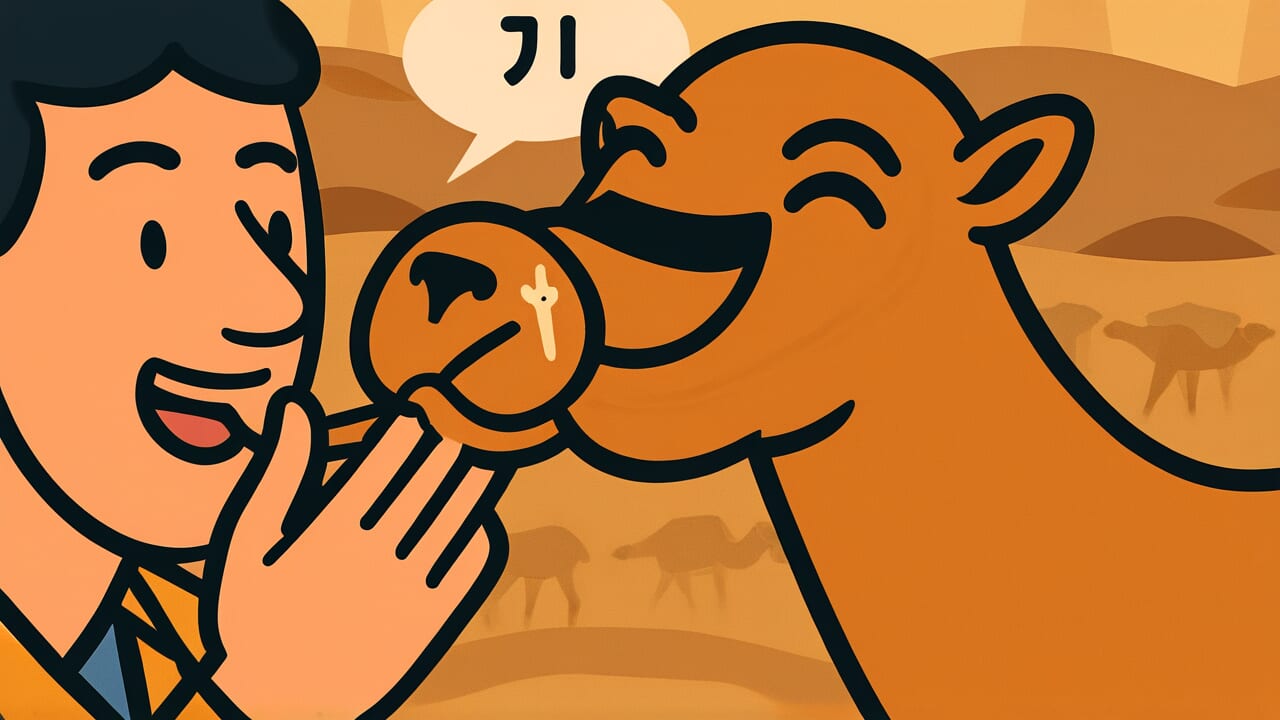Cultural Context
This Hindi proverb uses vivid imagery from India’s agricultural and trading past. Camels were essential animals for transportation across vast desert regions.
They could carry enormous loads and travel long distances without water. Cumin, a tiny spice seed, is fundamental to Indian cooking traditions.
The contrast between a massive camel and a tiny cumin seed creates powerful imagery. In Indian culture, this comparison highlights the absurdity of inadequate responses.
The proverb reflects values of proportion, appropriateness, and meeting needs adequately. It criticizes token gestures that fail to address real problems.
This saying is commonly used in family discussions and business negotiations. Parents might use it when children offer minimal effort for major requests.
It appears in everyday conversations about fairness and adequate compensation. The proverb remains popular across different Indian languages with similar variations.
Meaning of “Cumin in a camel’s mouth”
The proverb literally describes placing a single cumin seed in a camel’s mouth. A camel needs substantial food and water to survive and work.
One tiny seed does nothing to satisfy its hunger or thirst. The image shows complete mismatch between need and provision.
This saying describes situations where the response is laughably inadequate for the demand. When a company gives a small bonus after record profits, it’s cumin for a camel.
When someone asks for major help but offers tiny compensation, the proverb applies. A student requesting extensive tutoring but offering minimal payment fits this pattern.
The proverb carries a tone of criticism or mockery toward the inadequate offer. It suggests the provider either doesn’t understand the real need or deliberately insults.
The saying works best when the gap between need and provision is enormous. It doesn’t apply to situations where modest help is genuinely appropriate.
Origin and Etymology
It is believed this proverb emerged from trading communities in northern India. Camel caravans transported goods across desert trade routes for centuries.
Merchants understood the substantial resources needed to maintain these valuable animals. The contrast with tiny cumin seeds would have been immediately obvious.
Oral tradition passed this wisdom through generations in Hindi-speaking regions. Similar proverbs exist in other Indian languages using different imagery but identical meaning.
The saying likely spread through merchant families and agricultural communities first. Over time, it entered common speech across various social classes.
The proverb endures because its imagery is instantly understandable and memorable. The absurdity of the image makes the point without lengthy explanation.
Modern Indians use it even when camels are no longer common transportation. The core truth about inadequate responses remains relevant across changing times.
Usage Examples
- Manager to Employee: “You bought expensive software but never learned to use it – Cumin in a camel’s mouth.”
- Friend to Friend: “He inherited a fortune but doesn’t appreciate its value – Cumin in a camel’s mouth.”
Lessons for Today
This proverb addresses a common problem in negotiations and relationships today. People sometimes offer minimal effort while expecting maximum benefit in return.
Understanding this imbalance helps us recognize unfair situations and respond appropriately. The wisdom encourages proportional thinking in our exchanges with others.
When evaluating job offers, this proverb provides useful perspective on compensation packages. A demanding role with minimal pay and benefits is cumin for a camel.
In personal relationships, expecting major favors while offering little support creates similar imbalance. Recognizing these patterns helps people set appropriate boundaries and expectations.
The key is distinguishing between genuinely modest situations and inadequate responses. Not every request requires enormous compensation or effort in return.
Sometimes small gestures are appropriate and appreciated for what they are. The proverb applies when someone clearly understands the real need but deliberately offers too little.



Comments